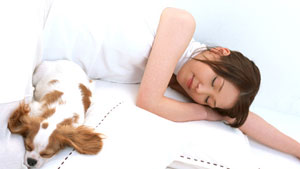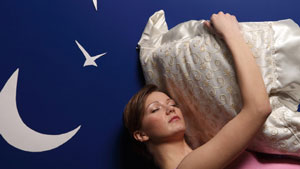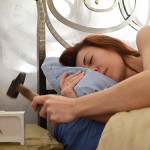Sleep hygiene
If consistently falling asleep in under 20 minutes is your goal, then there are many ways to sleep better. One of which is to pay attention to your daily routine. If you have no routine and you're wondering why sleep is such a hard thing for you, then pay attention to your sleep hygiene. There are certain things you can do better during the day to set you up to be tired at night. If it sometimes takes you hours to fall asleep, you are not making yourself tired enough during the day or you are keeping yourself through unnecessary stimulation.

Sleep Hygiene Tips
1. Bedtime Preparation
Let your body know when it is time to sleep by regulating when you are being exposed to light and dark. This is crucial in sleep hygiene theory.
2. Let Sleep Happen
I don't know anyone who can force themselves to sleep. It just happens. Allow yourself to fall asleep by practicing good sleeping habits.
3. Use Your Bed for One Purpose
You eat on your bed, you work on your bed, and you watch TV on your bed. But it's not what your bed is intended for, which may be disrupting your sleep cycle.
4. Manage Naps
Naptime should be reserved for certain times and for certain lengths. Carelessly taking long snoozes during the day will make it harder for you to fall asleep at night.
5. Regulate Body Temperature
Having the right body temperature when you are in bed makes it easier to fall asleep. The key is finding out the perfect combination of hot and cold. See what works for you.
6. Get Out and Start Moving
Exercise needs to be incorporated into your daily routine if you hope for better sleep. There is no way around it. Staying active is part of sleep hygiene.
7. Earning Your Sleep
Make sleep your reward and work hard for it. If you aren't working hard in the day, then you will be wide awake at night.
Practice Good Sleeping Hygiene Habits in Order to Prepare Yourself for Sleep Every Night. The Result Will Be Going to Sleep Faster and Sleeping More Soundly
There are many ways to promote a healthy sleep hygiene, but what it really comes down to are the routines you do every day that do not disrupt your sleep cycle.
1. Set the Mood for Bedtime
Your body has its own clock, which is called your circadian rhythm. It's our natural tendency to start getting tired when it's dark. When the sun goes down, it starts signaling to your body that it's time for sleep. Don't fight what your body needs. Limit your exposure to artificial lights coming from technology or indoor lighting when it's time to go to sleep. A good time to do this would be an hour before you are planning on going to sleep. A good sleep hygiene tips is to set your bedtime for exactly 8 hours from tomorrow's sunrise. This way your body is woken up naturally to sunlight. I like to keep my window drapes open so that this happens.
It's only natural that our bodies adjust to how much light there is before going to sleep. This is why it's important to keep your room as dark as possible when it's time to get ready for sleeping better. This means no night lights, televisions, or any other artificial lights. Once your eyes adjust to the complete darkness, it will signal to your body that it's time to wind down. Some people will tell you that they are night owls and that they are just different from normal people because they go to sleep in the morning and wake up in the afternoon. This is because they changed the way their body got ready for sleep and doesn't mean that this is healthy for their circadian rhythm.
2. Don't Force Sleep
You cannot force sleep when your body does not want to sleep. This is why having a routine is important; both a daytime and a nighttime routine in order to signal to your body it is time to sleep. If for some reason your sleep hygiene isn't functioning normally, it could be a problem with your routine. If you have sleep problems, then just stay awake and use your time productively. You will get tired eventually. However, wake up at the same time every day. Even if you only get a few hours of sleep, you need that fixed routine in order to get your body tired at the right time.
If you are unsure about what to do, consider some exercise. Go out for a walk under the moon if you are comfortable with the safety of your neighborhood. It will give you time to think about whatever is on your mind. Usually we can't sleep because of stress and too many things on our mind. Eliminate the racing thoughts by setting aside 30 minutes for walking then try to go to sleep again.
3. Use Your Bed Only When Sleeping
Many of us, myself included, use our bed for many purposes other than sleep. But studies have shown that bad sleeping habits is related to the time it takes you to follow asleep. Using your bed as a multi-purpose tool takes away from the quality of your sleep. It makes sense, but also takes away the most comfortable part of our home. I like to use my bed for computer work, watching movies, and texting. However, these are said to be bad for your circadian rhythm and would be best to eliminate them from your nighttime routine entirely.
The science behind getting to sleep is that your body knows when you lay down then it's time for sleep. You shouldn't be lying down during any other part of the day. During the day you should be out doing things, thus making your body tired around the time you get in bed. If you lie down and take naps throughout the day then you are making it harder to get to sleep at night.
4. Manage Your Naps
The key to having healthy sleep hygiene is napping the right amount, or not even at all. Naps serve a good purpose to re-energize ourselves in the middle of the day. The only time I take one is if I need to catch up on sleep. Falling asleep at 5pm for a few hours, however refreshing it is, will leave you awake during the nighttime. Long naps knock us out of our circadian rhythm. Regular naps are okay for someone with enough time during the day to do so. But the only people who need naps are babies and the elderly. If you get good sleep during the night, then naps won't be necessary.
The more time you take during a nap after 30 minutes, the harder you are making it for yourself to fall asleep at night. Manage your nap time, and don't let your nap time manage you.
5. Get a Good Quality Comforter and Adequate Air Circulation
Our bodies can be very picky when it comes for the right temperature for sleep hygiene. Depending on the weather, some of us would prefer a chilly room while some need it to be warm and cozy. Our body temperature needs to be just right in order to fall asleep quickly. Personally, I sleep best with the window open and a super-warm blanket to get me through the night. The worst is when you have a hot and humid room and you can't stop sweating. In that case, I would recommend a cold shower for 10 minutes before you hit the hay. It's definitely easier said than done, but that cold shock to your system might be just what you need to fall asleep.
Regulate your body temperature properly with a lightweight and efficient comforter that will warm you up quickly and keep you cozy throughout the night. Crack your window just the right amount so your room isn't stuffy and you will have the right mix of hot and cold for your body to get optimal rest.
6. Avoid a Sedentary Lifestyle
Taking a walk for 20 minutes might be enough for you, while someone else would require an hour of intense exercise to be tired at night. Everyone is different. You just have to find your own routine that works. Your daytime routine is just as important as your nighttime routine when it comes to getting a good night sleep. Some studies show to exercise a couple of hours before sleep for optimal tiredness. Myself though, I'd prefer to exercise early in the morning. Getting up in the morning and working out sets a precedent for the rest of the day. A good exercise routine creates a positive feedback loop that will keep you working hard.
Usually those with insomnia problems aren't living a balanced lifestyle. Either too much junk food or too much time sitting in the same place for too long. Take frequent breaks to make sure you aren't idle for too long because then your mind and body will start to decay. Break the cycle of stillness and move your body around in any way you can. Everything you do burns calories; even thinking. The time you spend not doing anything is time wasted. Improving sleep is as simple as making yourself busier.
7. Earn that Sleep
Sleep is your reward at the end of the day. The quality of sleep you get should signify how hard you worked that day. Make yourself tired all throughout the day to make sure that you will fall asleep the moment you hit the bed. This is not so much sleep hygiene as it is common sense. If you work hard, think hard, and play hard, then you will sleep hard. If your days are unfulfilling and you aren't trying to improve yourself in every way possible, then sleeping isn't much of a reward. Going through the motions will not give you the quality of sleep you are searching for.
The purpose of your days shouldn't be to relax. Save that privilege for night time and your body will reward you with easy sleep. There is a time for work and a time for rest. Make sure you work your hardest in your days and your night time should be used to heal up for the days ahead. Keep active and keep moving; both your body and mind.
How sleep hygiene helps you sleep without sleeping aids
You don't need artificial sleeping aids like sleep medicine in order to fall asleep. Sleeping problems are becoming more common because of lifestyle changes that are deviating away from getting natural sleep. How to sleep well depends on understanding the basics of sleep hygiene and what you need to do beforehand to fall asleep quickly.








